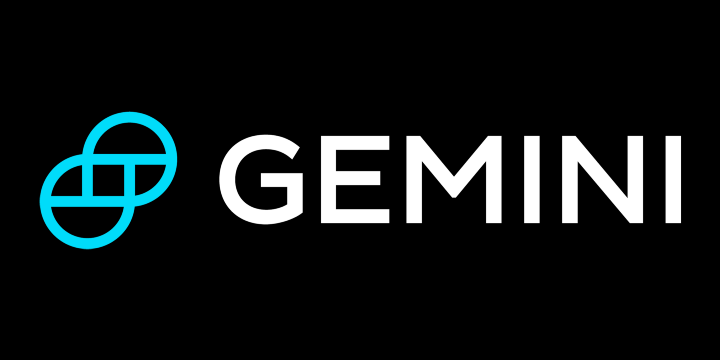What is a stable coin?

Bitcoin price movements Source
Cryptocurrencies' volatility is often referred to as investors hell and traders paradise. The unpredictable price movements which gained crypto the stage as a speculative investment tool has proven to be impractical for payment purposes. By definition, stable coins are a class of cryptocurrencies whose unit value is tied to the unit value of a stable asset for example fiat currencies, gold. Stable coins can either be reserve backed or algorithmic. Reserve backed stable coins are collateralized by real assets. The most common stable coins are reserve backed, with their value pegged to USD, whereby every token of the stable coin is backed by one US Dollar. Algorithmic stable coins, on the other hand, use software rules to match its supply and demand to produce a relatively stable price.
Huobi Group, the world's leading blockchain company, will be listing PAX, TUSD, USDC, and GUSD

Owing to the regulatory uncertainty and counterparty risks of dealing with cryptocurrency, it is hard for investors to find any traditional banking institution when moving in or out of cryptocurrency into Fiat. Stable coins, therefore, act as a bridge, by allowing fiat reserves to be kept in a bank. The issued stable coins tokens are used to trade on exchanges or to make payments and are easily redeemable for Fiat in case the need arises. This makes entry and exit into cryptocurrency using traditional currencies much easier.
Since stable coins are cryptocurrencies, they are tradable with other cryptocurrencies thereby alleviating the need for fiat to crypto exchanges
Stable coins are also practical for secure online payments
Tether, the oldest and most widely adopted stable coin has been under scrutiny as to whether all its issued coins are fully collateralized. This came in the wake of allegations that Tether was being issued to pump prices of bitcoin and Etherium, plus the subsequent fall out of the Tether Cooperation with their official auditors. As such, many institutions have capitalized both on Tethers woes and the increasing demand for stability in the crypto economy to launch stablecoins, with emphasis on transparency and public audit.
Huobi the third largest exchange by volume, will be listing 4 stablecoins to offer users choice and convenience. Huobi will open deposits and withdrawals on the October 19th, with two regulator-approved stablecoins: the Gemini exchange's GUSD and Paxos' PAX, and two other stable coins. It is noteworthy that unlike some exchanges, Huobi has no plans to restrict trading, deposits, or withdrawals. You can register on Huobi Global here, to begin trading with your favorite stable coin
Paxos Standard Token (PAX)

Paxos Standard Token (PAX is a stable coin issued by Paxos Trust Company under US regulation, particularly the New York Department of Financial Services. According to an article on Bitcoin Exchange Guide, Paxos is audited by Withum, an independent auditing firm on a monthly basis, with the latest audit on September 28th confirming that Paxos had 14 million USD in reserve to march the 14 million PAX it had issued at the time. Paxos tokens are redeemable one to one with US dollars.
Learn more about PAX at the official website: https://www.paxos.com/
TrueUSD

TrueUSD is an ERC 20 standard stable coin backed by USD. Collateralized by USD, it can be exchanged with and trusted by multiple banking partners in legally protected escrow accounts.
Every TrueUSD is always fully collateralized by USD, held in a professional trust company's escrow account. Our publicly audited smart contracts mint TrueUSD when USD clears the escrow accounts and burns TrueUSD when USD is redeemed to ensure a 1:1 parity between the TrueUSD in circulation and USD in the escrow accounts.
You can learn more on their official website:
USDCoin (USDC)

USDC is a U.S. dollar-backed stable coin issued by Circle and powered by CENTRE's open-source framework. USDC offers solutions with detailed financial and operational transparency and resolves the problems that exist in the current crypto market. It is operated within the regulated framework of U.S. money transmission laws with established banking partners and auditors. On the basis of open membership, any eligible financial institutions can join USDC.
Learn more about USDCoin(USDC) at the official website: https://www.centre.io/
Gemini Dollar (GUSD)

Issued by Gemini Trust Company, a New York trust company the Gemini Dollar is the world's first regulated stable coin approved by U.S. regulators. The token is built on the Etherium network in the ERC 20 standard with a peg of 1 GUSD = $1. The dollars' reserve is held at State Street Bank and Trust Company and is independently audited by BPM, LLP, a registered public accounting firm. The Gemini Dollar is transferable over the Etherium network
REMARKS
Price volatility is a major impediment to the mainstream adoption of cryptocurrencies, and as such stable coins provide a reprieve in terms of making payments and saving without worrying much about price movements.
Even though stable coins are not fully decentralized, i.e because they are pegged to Fiat, they are essentially reliant on central banks and third-party authorities, transparency measures through regulatory compliance and independent audits should quell fears of manipulation.
The benefits of stable coins far outweigh their demerits; they allow investors to escape volatility of crypto markets without cashing out into fiat. In essence, it allows an investor to safely keep their profits when markets take a downturn. Consequently, stable coins are a realistic onramp for risk-averse traditional markets into the new crypto economy.
Owing to the fact that some of the new stable coins are yet to be fully adopted and their subsequent low volumes, Huobi is inviting Institutional traders, acceptance dealers and OTC market makers for cooperation. If interested, you can contact Huobi at [email protected] with the subject line "Stablecoin Cooperation" for assistance.
Disclaimer: This article is not intended as investment advice. It is for informational purposes. You should always do your own research.